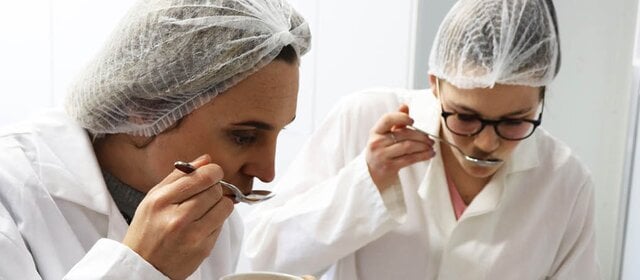Could Rooibos Play a Role in Brain Health?
25 June 2025
Excerpt:
Rooibos has long been recognised for its antioxidant and anti-inflammatory benefits, but its potential role in supporting cognitive function is now becoming a subject…

Rooibos has long been recognised for its antioxidant and anti-inflammatory benefits, but its potential role in supporting cognitive function is now becoming a subject of scientific interest. While the health benefits of rooibos are already widely appreciated, from heart support to hydration, new research is investigating whether this uniquely South African plant could offer protective effects for the brain, particularly in the context of Alzheimer’s disease.
One promising area of study comes from Dr Taskeen Docrat, a researcher at the Cape Peninsula University of Technology. Her work, highlighted during Youth Month 2025, explores how compounds in rooibos may affect amyloid beta (Aβ) proteins. These proteins are known to form the plaques in the brain that disrupt cell communication and are a hallmark of Alzheimer’s disease. Dr Docrat is investigating whether rooibos can reduce the harmful effects of these proteins by combatting oxidative stress and supporting mitochondrial function in brain cells (Department of Science and Innovation, 2025).
What makes rooibos particularly interesting in this space is its unique profile of polyphenols, including aspalathin and nothofagin. These compounds have demonstrated antioxidant activity in numerous studies and have the potential to cross the blood–brain barrier, a crucial factor in any substance intended to protect brain function.
In fact, earlier research has already pointed in this direction. A 2014 study published in PLoS ONE showed that rooibos tea significantly reduced oxidative stress in the brains of rats subjected to immobilisation stress, an established model for studying psychological stress and neurological damage. The researchers found that rooibos tea restored the activity of antioxidant enzymes and stabilised stress-related biomarkers in the brain (Hong et al., 2014).
More recently, a comprehensive review published in Molecular Nutrition & Food Research (Chipofya et al., 2025) examined multiple preclinical studies that suggest rooibos may help reduce neuroinflammation, lower amyloid plaque formation, and support neurotransmitter balance. Although this research is still at an early stage, it adds weight to the idea that rooibos could one day form part of a broader dietary strategy for maintaining brain health.
It’s too soon to say whether rooibos could play a formal role in Alzheimer’s prevention or treatment. The research is ongoing, and human clinical trials will be needed to establish any clear therapeutic outcomes. But the direction is encouraging. It also underscores the value of local resources in addressing global health concerns.
At Carmién, we’re proud to see rooibos being studied so rigorously and to see young South African scientists at the forefront of that work. Rooibos is more than just a daily ritual. It’s a plant with untapped potential, and research like this is helping to reveal new dimensions of its benefits.
We’ll continue keeping an eye on where the science goes next. For now, there’s something exciting about knowing that every cup could be part of something bigger.
References:
Chipofya, E., Docrat, T.F. and Marnewick, J.L., 2025. The neuroprotective effect of Rooibos herbal tea against Alzheimer’s disease: A review. Molecular Nutrition & Food Research, 69, e202400670. https://doi.org/10.1002/mnfr.202400670
Department of Science and Innovation (DSI), 2025. Youth innovation using rooibos tea: A natural ally in the fight against Alzheimer’s. [online] Available at: https://www.dsti.gov.za/index.php/media-room/latest-news/4670-youth-innovation-using-rooibos-tea-a-natural-ally-in-the-fight-against-alzheimer-s [Accessed 24 Jun. 2025].
Hong, I.S., Lee, H.Y. and Kim, H.P., 2014. Anti-oxidative effects of Rooibos tea (Aspalathus linearis) on immobilisation-induced oxidative stress in rat brain. PLoS ONE, 9(1), e87061. https://doi.org/10.1371/journal.pone.0087061
